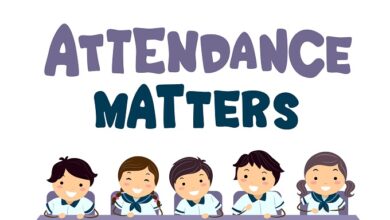Teachers need ‘psychological capital’

Burn-out has just been included in the International Classification of Diseases as an occupational phenomenon, not a medical condition, by the World Health Organisation (2019).
We are literally working ourselves to exhaustion. It is well documented in the research that teacher stress is high and burnout is increasing. Teaching requires cognitive, social and emotional resources, yet most professional development opportunities focus on subject knowledge, curriculum development or student needs. More must be done to support the psychological wellbeing of our greatest asset in our schools – our teachers.
With research always changing and new ideas or new programs frequently released in schools, it can be overwhelming for teachers. While remaining up-to-date with best practice, standards and competencies is essential, we must also acknowledge the human quality of teaching. We must acknowledge that teachers can be involved in up-to 1,000 interpersonal contacts a day. We must acknowledge the mental fatigue teachers face, having made 1,500 decisions a day, and we must support teachers in restoring their emotional wellbeing so they can get up and do it all again the next day.
In a nutshell, we need to help teachers build what professor of organisational behaviour Fred Luthans calls “psychological capital” (PsyCap). This includes teaching evidence-based strategies from vigorous research fields such as hope theory, efficacy, resilience and optimism. Together, these areas of research spell HERO.
Rick Snyder’s hope theory explains HOPE as a positive motivational state that involves agency (will power) and pathways (way power). This means encouraging teachers to set their own meaningful goals as well as multiple pathways for actioning these goals that encourage flexibility and scaffolding.
Albert Bandura’s work on social cognitive theory highlighted efficacy as an important predictor of achieving mastery. When we believe in our own ability, coupled with observation and reflection, we grow in confidence. This means that when teachers are given the tools and opportunities to observe each other and reflect on their actions, they can not only build their own confidence but can also build collective teacher efficacy.
Martin Seligman’s work on optimism highlights the impact our explanatory style can have on how we interpret experiences. This means as teachers we may view events as personal, where we blame ourselves, permanent because we see nothing changing, or pervasive where we use previous experiences to assume outcomes of future experiences. Through awareness and using specific questioning models, we can reframe these perspectives from helplessness to optimism.
Ann Masten’s work on resilience has shown how our psychological, cognitive, emotional and social resources can impact our ability to not only bounce back from adversity, but bounce forward towards growth and development. This means teachers would benefit from learning how to manage their thoughts, emotions and interactions, to better manage everyday changes and the setbacks we may experience in a normal school day.
What we also know is that while each of these areas of research is already rigorous, when they are put together as PsyCap, they become greater than the sum of its parts. When teachers are given the opportunities to learn evidence-based strategies that develop hope, efficacy, resilience and optimism, they not only improve their ability to cope and grow but have the psychological capital to be a HERO to both themselves and their students.







